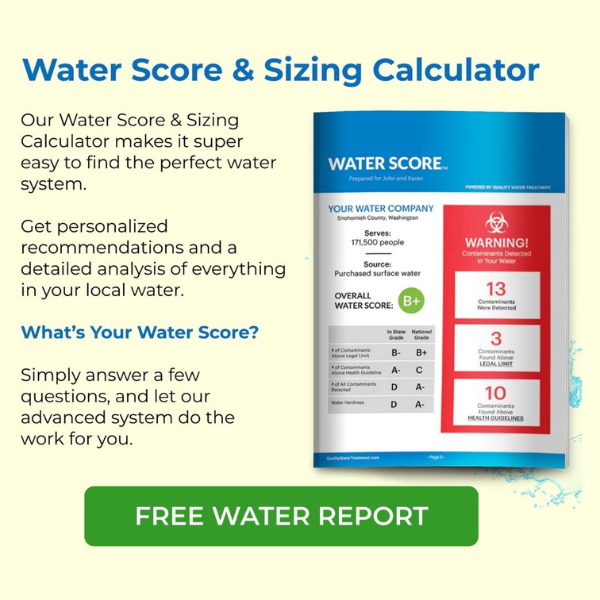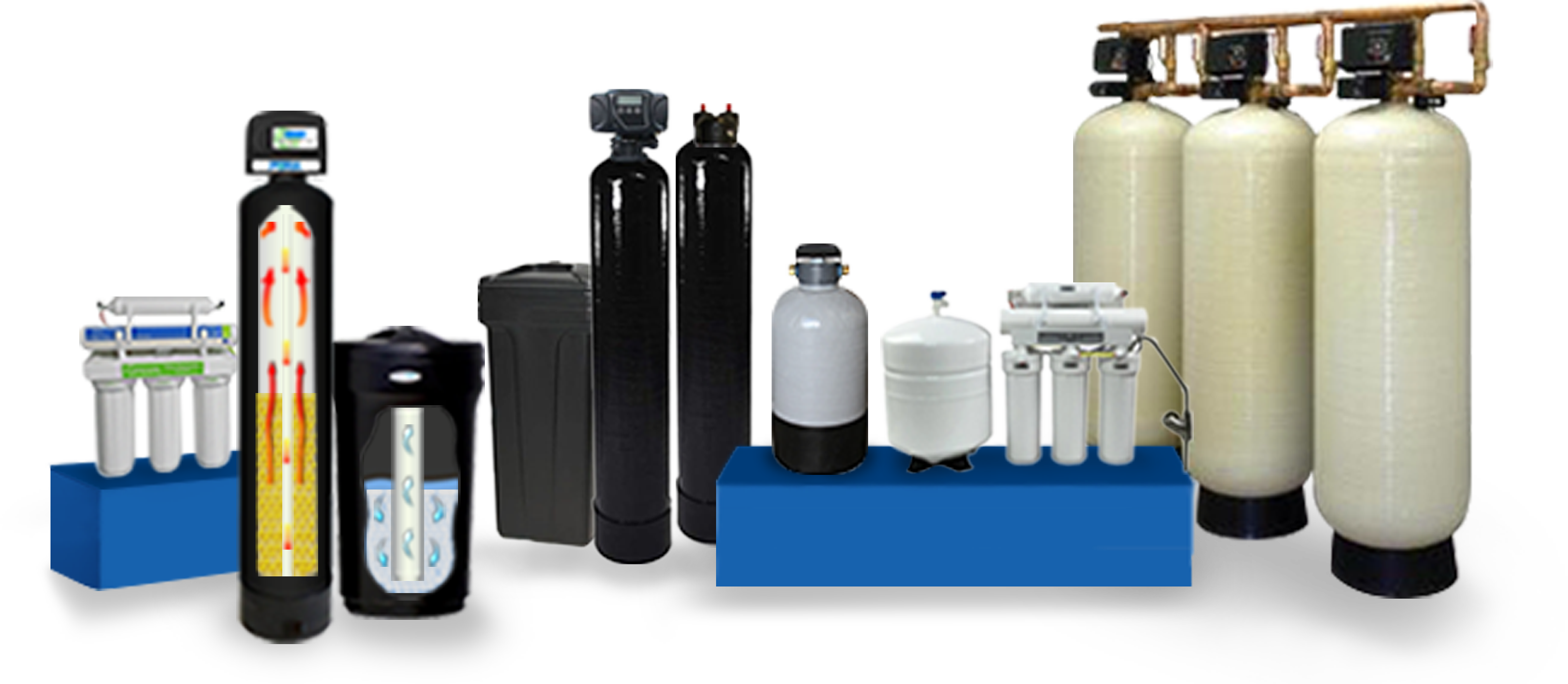Water Softener Sizing
Powered by Quality Water Treatment The most comprehensive tool developed by industry experts.Residential Solutions
City Water & Well Water Get proper sizing and compare
top products from top brands.
Commercial Water Treatment Solutions
Comprehensive Industrial and Commercial Recommendations. Instant commercial water softener sizing at your fingertips.
Find Your Perfect Water Softener Size in Minutes
Wondering how to choose the right water softener for your home?

Our free water softener sizing calculator takes the guesswork out of selecting the perfect system for your needs. Whether you’re looking to soften water for your home, RV, or commercial property, we provide precise recommendations based on your specific water conditions and usage patterns.
Why Proper Water Softener Sizing Matters

Selecting the right size water softener is crucial for optimal performance and efficiency. An undersized system won’t effectively handle your water hardness, while an oversized unit wastes salt and water.
Our calculator helps you determine water softener size with precision, considering factors like:
- Your daily water usage patterns
- Local water hardness levels
- Number of people in your household
- Peak water demand periods
- Specific water quality challenges
Free Comprehensive Water Analysis Report
For city water users, we go beyond basic water softener sizing. Our calculator provides a detailed water analysis report that reveals exactly what’s in your municipal water supply.
Understanding your water composition helps you:
- Calculate water softener grains needed for effective treatment
- Determine optimal hardness settings for your system
- Identify additional water quality concerns
- Make informed decisions about water treatment solutions
Versatile Sizing Solutions for Every Need
Whether you’re calculating grains for a water softener in a small apartment or sizing a commercial water softener for an industrial facility, our calculator adapts to your requirements:
Residential Sizing
- Find the perfect water softener size for a family of 2, 4, or more
- Calculate optimal grain capacity for your household
- Determine how many grains you need in a water softener based on your usage
- Get personalized recommendations for your home’s specific needs
Commercial Applications
- Access commercial water softener sizing tools
- Calculate industrial water softener requirements
- Determine system specifications for large-scale applications
- Get professional-grade sizing recommendations
RV & Mobile Solutions
- Calculate portable system requirements
- Determine compact softener specifications
- Get sized-right solutions for mobile applications
How Our Calculator Works

Our advanced sizing tool helps you determine what size water softener you need by analyzing multiple factors:
- Water Source Analysis: Whether you’re on city water or well water, we account for your specific water quality parameters.
- Usage Patterns: We calculate your daily water consumption based on household size and habits.
- Hardness Levels: Our calculator processes your water hardness data to determine necessary grain capacity.
- System Recommendations: You receive detailed specifications for properly sized water softener options.
Expert Guidance for Every Situation
Not sure how to determine water softener hardness settings? Wondering how to calculate water softener capacity?
Our calculator provides clear guidance every step of the way, helping you:
- Choose the right size water softener for your house
- Understand how to size a water softener system properly
- Calculate the optimal grains per gallon for your needs
- Determine the best water softener configuration for your situation
Why Trust Our Calculator?

Our water softener grains calculator uses proven mathematical formulas and industry-standard calculations to ensure accurate sizing recommendations.
Whether you’re choosing a new system or verifying your existing setup, you’ll get reliable guidance on:
- How to calculate softener capacity
- How to determine the right size water softener
- How to figure out what size water softener you need
- How to properly size a water softener for optimal performance
Stop wondering “how big of a water softener do I need?” or “how many grains should my water softener be?”
Get your free sizing recommendation today and take the first step toward better water quality for your home or business.
Ready to find your perfect water softener size?
Use our free water softener sizing calculator now and get instant, personalized recommendations based on your specific needs and water conditions.


